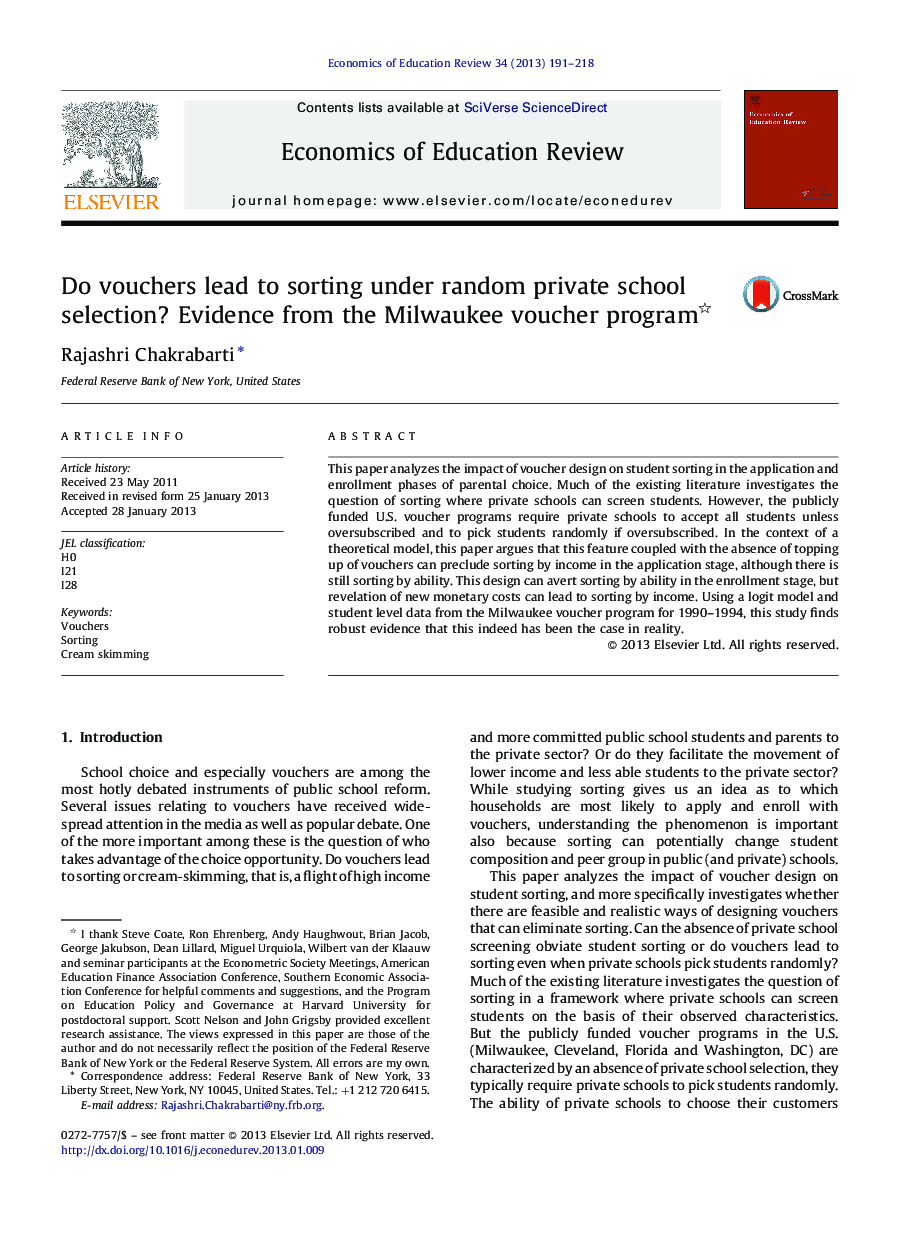| Article ID | Journal | Published Year | Pages | File Type |
|---|---|---|---|---|
| 354489 | Economics of Education Review | 2013 | 28 Pages |
This paper analyzes the impact of voucher design on student sorting in the application and enrollment phases of parental choice. Much of the existing literature investigates the question of sorting where private schools can screen students. However, the publicly funded U.S. voucher programs require private schools to accept all students unless oversubscribed and to pick students randomly if oversubscribed. In the context of a theoretical model, this paper argues that this feature coupled with the absence of topping up of vouchers can preclude sorting by income in the application stage, although there is still sorting by ability. This design can avert sorting by ability in the enrollment stage, but revelation of new monetary costs can lead to sorting by income. Using a logit model and student level data from the Milwaukee voucher program for 1990–1994, this study finds robust evidence that this indeed has been the case in reality.
► This paper analyzes the role of voucher design in student sorting in the application and enrollment stages of parental choice. ► It studies the first five years of the Milwaukee voucher program, both theoretically and empirically. ► It finds that random private school selection coupled with the absence of topping up can preclude sorting by income in the application stage. ► However there is still sorting by ability in this stage. ► This design can avert sorting by ability in the enrollment stage, but revelation of new monetary costs can lead to sorting by income.
